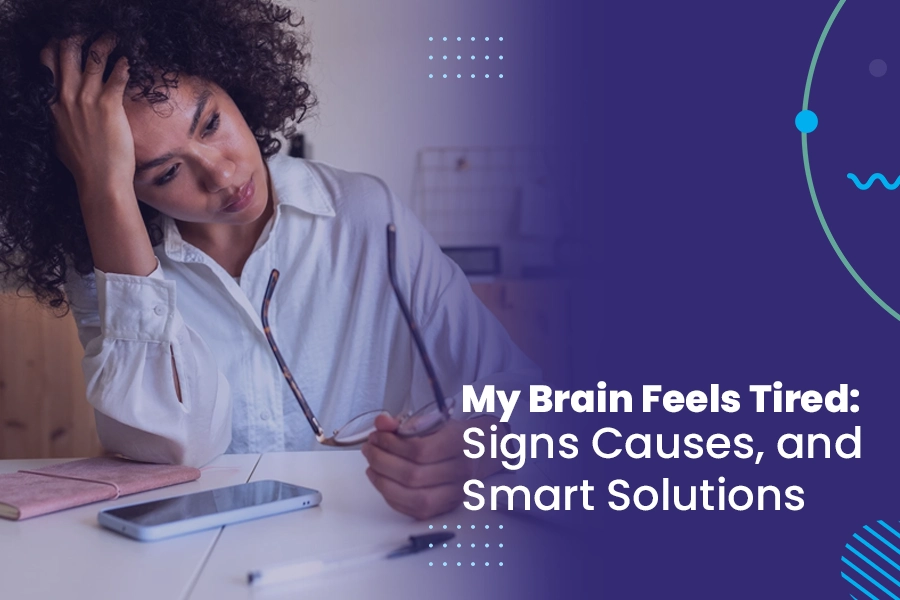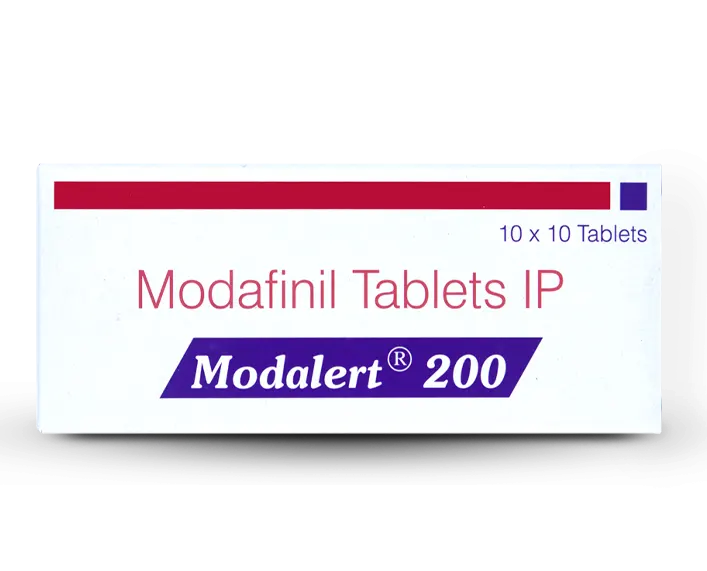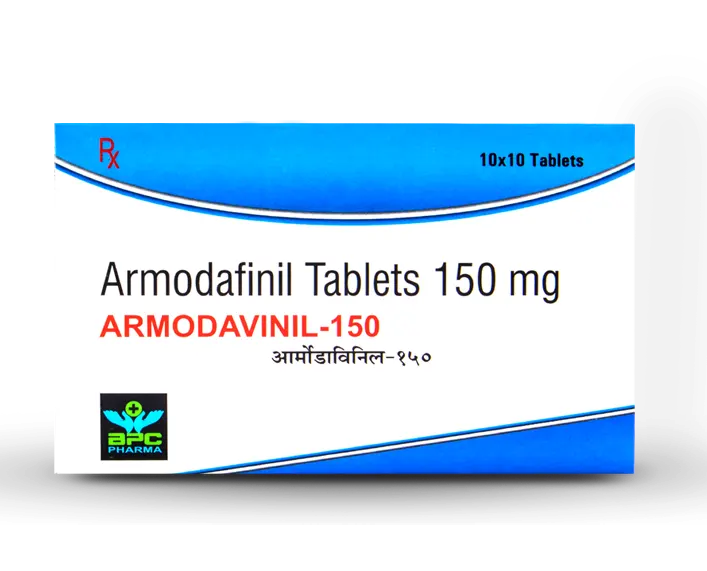Why My Brain Feels Tired: Signs, Causes, and Smart Solutions

Feeling like “my brain feels tired” is more common than you think. Sometimes it’s a one-day slump after a late night; other times it’s a persistent mental drag that makes concentration, memory, and motivation an uphill climb.
This article explains what brain fatigue (mental exhaustion) really is, the common and surprising causes, practical evidence-based fixes you can try today, when to see a doctor.
What does it mean when “my brain feels tired”?
When people say “my brain feels tired” they usually mean a cluster of symptoms: slowed thinking, poor concentration, forgetfulness, low motivation, decision fatigue, and a feeling of mental heaviness or fuzziness often called brain fog or cognitive fatigue. Clinical sources describe brain fog as difficulty focusing, confusion, memory lapses, and mental exhaustion that make routine thinking feel effortful.
Best sellers
-
Modalert 100mg Australia
$69.00 – $449.00Price range: $69.00 through $449.00Shop Now This product has multiple variants. The options may be chosen on the product page -
Modalert 200mg Australia
$69.00 – $449.00Price range: $69.00 through $449.00Shop Now This product has multiple variants. The options may be chosen on the product page -
Armodavinil 150mg
$69.00 – $395.00Price range: $69.00 through $395.00Shop Now This product has multiple variants. The options may be chosen on the product page -
Modavinil 200mg
$69.00 – $395.00Price range: $69.00 through $395.00Shop Now This product has multiple variants. The options may be chosen on the product page -
Modafil Md 200 mg
$69.00 – $345.00Price range: $69.00 through $345.00Shop Now This product has multiple variants. The options may be chosen on the product page -
Modvigil 200mg
$65.00 – $395.00Price range: $65.00 through $395.00Shop Now This product has multiple variants. The options may be chosen on the product page
Common signs that your brain is fatigued
- Trouble concentrating or finishing simple tasks.
- Slower processing speed and forgetfulness.
- Feeling mentally “cloudy” or detached.
- Irritability, low motivation, or reduced creativity.
- Increased mistakes on routine work and poor decision-making.
Why your brain feels tired — the most common causes
There isn’t one single cause for a tired brain. Often, several factors stack up and overwhelm your cognitive resources:
1. Poor sleep and sleep disorders
Regular short sleep, fragmented sleep, or undiagnosed sleep disorders (like sleep apnea) reduce the restorative processes the brain needs. Over time, sleep debt causes persistent daytime cognitive fatigue.
2. Chronic stress and emotional load
Constant worry, multitasking, and emotional strain use up the brain’s executive-control resources. When those systems are taxed, even simple decisions feel exhausting.
3. High cognitive load and decision fatigue
Sustained intense mental work — studying for hours, back-to-back meetings, or heavy multitasking — wears on attentional systems and reduces mental endurance. Recent research suggests specific brain circuits signal when mental effort becomes too costly, prompting a “give up” response.
4. Poor nutrition, dehydration, and metabolic issues
Low iron, B12 deficiency, low blood sugar swings, dehydration, or a diet that doesn’t support steady energy can make thinking feel sluggish. Some everyday dietary patterns (heavy refined carbs, skipping meals) worsen mid-day brain drain.
5. Medical causes and medications
Thyroid disease, anemia, infections, chronic fatigue syndrome, depression, and side effects of certain medications can produce persistent brain fatigue. Chronic conditions sometimes change brain–immune interactions and cortical function, producing long-term cognitive tiredness. If your tiredness is new, severe, or worsening, check with a healthcare provider.
6. Digital overload and fragmented attention
Rapid switching between apps, notifications, and shallow work reduces ability to sustain deep focus; the result is mental fatigue and impaired working memory.
7. Sleep-inertia and shift work
If you work nights or rotate shifts, circadian misalignment can hurt alertness and make your brain feel perpetually tired; this is one reason wakefulness agents exist.
The brain science for your understanding
Your brain has limited cognitive “fuel” and systems that estimate whether effort is worth it. When demands repeatedly outpace restorative inputs (sleep, nutrition, downtime), networks that support attention and executive control lose efficiency. New neuroscience points to interacting brain areas that may signal when the mind “feels” tired and when we’re likely to stop pushing — understanding this helps explain why rest and strategic recovery work better than sheer willpower.
Quick first-aid: how to refresh your mind right now
When your brain slips into fog, these short, evidence-aligned interventions often help immediately:
- 20-minute walk (preferably outside): movement + fresh air resets attention.
- Microbreaks (5 minutes every 25–50 minutes): follow a Pomodoro rhythm to restore focus.
- Hydrate + a protein-rich snack: stabilizes blood sugar and alertness.
- 2–15-minute power nap: a short nap can restore alertness without sleep inertia (timing matters).
- Single-task for 25 minutes: switch off notifications and focus on one task to regain momentum.
- Deep breathing or a 2–5 minute mindfulness break: lowers stress and reduces cognitive load.
Smart long-term fixes to stop asking “why my brain feels tired”
1. Prioritize consistent, restorative sleep
Aim for consistent bed/wake times and 7–9 hours of quality sleep. Treat sleep as a daily investment — it’s the single most powerful way to reduce brain fatigue. If you snore, gasp, or fall asleep unintentionally in the day, discuss sleep apnea testing with a doctor.
2. Rebuild your cognitive diet (nutrition + hydration)
Eat regular meals with lean protein, whole grains, healthy fats, and vegetables. Check for iron, vitamin B12, and vitamin D deficiencies if your fatigue is persistent — these are common, treatable contributors to brain fog. Drink water regularly.
3. Move daily (even short bursts)
Aerobic exercise and short movement breaks improve blood flow and neurochemical balance; they boost attention and executive function over time. Even 15–30 minutes a day helps.
4. Reduce decision overload and multitasking
Use routines, schedule decision-heavy tasks for your peak hours, and batch similar work. Remove trivial choices (e.g., meal prep, wardrobe rules) to preserve mental energy for important thinking.
5. Manage stress and emotional load
Long-term stress remodels attention and motivation circuits. Regular stress-management — therapy, journaling, social support, mindfulness — reduces chronic brain drain.
6. Audit medications and medical causes
Review prescriptions with your clinician; antihistamines, some antidepressants, and other drugs can cause brain fog. If symptoms suggest thyroid disease, anemia, or chronic fatigue syndrome, get appropriate tests and referrals.
About Modacare 200 mg (Modafinil) — what it is and when it’s used
You asked for Modacare 200 mg specifically. Modacare (a brand name for modafinil products) typically contains 200 mg of modafinil, a wakefulness-promoting agent used to treat narcolepsy, shift work sleep disorder, and certain cases of excessive daytime sleepiness often linked to sleep apnea. Modafinil promotes alertness by acting on brain neurotransmitters (dopamine, norepinephrine, etc.) and can reduce the subjective sense of sleepiness for people with diagnosed disorders. It is a prescription medication and is not a substitute for adequate sleep or treatment of underlying causes.
Important cautions:
- Modafinil (Modacare 200 mg) can cause side effects (headache, nervousness, nausea, insomnia) and has potential interactions with other drugs.
- It’s prescription-only in many countries and should only be used under medical supervision for approved conditions. Using it to “push through” chronic sleep debt without correcting the root problem is unsafe and ineffective long-term.
If you’re considering Modacare 200 mg because you feel mentally tired, talk to a clinician first — they will evaluate whether your tired brain is caused by a diagnosable sleep disorder or by something better treated with behavioral change.
Practical daily routine to refresh your mind
Morning
- Wake at consistent time; bright light exposure + 10–20 min movement.
- Protein-rich breakfast; hydrate.
Work block (90–120 minutes)
- Deep work 50–90 min, then 10–20 min active break (walk/stretch).
- Small protein snack and water.
Afternoon
- Power nap (15–30 min) if needed, or a brief walk.
- Tackle lighter tasks post-lunch; avoid heavy decision-making if you’re in a trough.
Evening
- Wind down electronics 60–90 minutes before bed; practice a calming routine (reading, warm shower).
- Sleep goal: 7–9 hours.
These habits reduce cognitive friction and improve daily resilience against brain fatigue.
When to see a doctor — red flags
- New, severe cognitive decline or confusion.
- Memory loss that affects daily life.
- Daytime sleepiness with loud snoring or breathing pauses.
- Persistent fatigue despite good sleep hygiene and lifestyle changes.
- Mood changes (severe anxiety or depression) with brain fog.
If any of these occur, seek medical evaluation for treatable causes.
FAQs
Q: Why does my brain feel tired even after sleep?
A: Persistent tiredness after sleep can come from poor sleep quality (sleep apnea), stress, nutritional deficiencies, medications, or medical conditions like thyroid disease or chronic fatigue. A clinical evaluation often helps.
Q: Will Modacare 200 mg fix my brain fatigue?
A: Modacare (modafinil) can temporarily improve alertness in people with diagnosed sleep disorders, but it’s not a cure for underlying causes. It should only be used under medical supervision.
Q: Are there natural ways to refresh my mind without pills?
A: Yes — consistent sleep, hydration, nutrition, exercise, regular breaks, and stress management are first-line, evidence-backed strategies.
Q: Could my tired brain be a sign of depression?
A: Yes — depression commonly causes cognitive slowing, low motivation, and fatigue. If you have persistent low mood, anhedonia, or suicidal thoughts, seek prompt medical help.
Q: How long until I feel better if I fix my sleep and routines?
A: Some people feel quick improvements (days to weeks) with consistent sleep and routine changes. If an underlying medical cause exists, improvement depends on diagnosis and treatment. If symptoms persist beyond a few weeks despite lifestyle changes, see a clinician.
References & further reading
- Johns Hopkins Medicine — “Feeling Mental Exhaustion? These Two Areas of The Brain May Control Whether People Give Up or Persevere.” (2025 research summary). Johns Hopkins Medicine
- PMC / academic review — “The Brain Fatigue Syndrome — Symptoms, Probable Causes” (review). PMC
- Health.com / general fatigue overview. Health
Product info pages describing Modacare / modafinil (for brand context). Moda Mind Fuels












